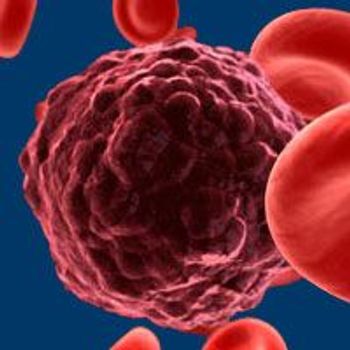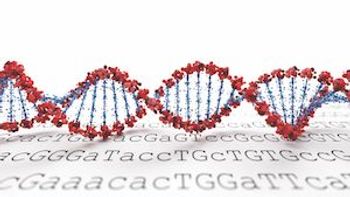
The FDA has granted a priority review to moxetumomab pasudotox for the treatment of adult patients with hairy cell leukemia who have received at least 2 prior lines of therapy.

The FDA has granted a priority review to moxetumomab pasudotox for the treatment of adult patients with hairy cell leukemia who have received at least 2 prior lines of therapy.

Coverage of our peer-reviewed research and news reporting in the healthcare and mainstream press.

On the closing day of the National Comprehensive Cancer Network (NCCN) 23rd Annual Conference in Orlando, Florida, Bijal Shah, MD, of Moffitt Cancer Center, presented on acute lymphoblastic leukemia (ALL), and on the lessons learned from the application of chimeric antigen receptor (CAR) T-cell therapy in this indication.

Despite price tags well over $350,000 for treatment, tisagenlecleucel, approved for children with B-cell acute lymphoblastic leukemia, and axicabtagene ciloleucel, approved for adults with certain B-cell subtypes of non-Hodgkin lymphoma, are considered cost effective, according to a report from the Institute for Clinical and Economic Review.

The current standard-of-care therapy for patients with clear cell renal cell carcinoma is sunitinib, but many patients relapse or don't have responses to the drug.

Renier J. Brentjens, MD, PhD, discusses the emergence of BCMA as a target for CAR T-cell therapy and other next steps for the field.

A 40-year old patient at the UNC Clinical and Translational Research Center was treated with SB-913 this week.

This is the first and only FDA-approved gene therapy for treatment for an inherited disease.

The addition of weekly carboplatin following surgery and radiation therapy did not improve freedom from locoregional relapse in patients with high-risk cutaneous head and neck squamous cell carcinoma.

Both prior chemotherapy and a dependence on glycolysis appear to reduce the potential to develop T cells into chimeric antigen receptor T-cell therapy.

The market price for gene therapy greatly exceed the costs of the gene editing development and the equipment required for the task.

Abeona announced that the U.S. FDA has granted rare pediatric disease designation to ABO-202, a gene therapy in development for the treatment of infantile and late infantile-onset Batten disease.

Using CRISPR/Cas9 gene editing to remove CD7 from healthy T cells, researchers have found a way to use third party T cells for CAR-T therapy in T-cell hematologic malignancies.

Migraine is not characterized by neuronal degeneration, but it has been a target of stem cell therapy in a few small investigational studies--and has shown early promise.

Holger L. Gieschen, MD, discusses the latest developments with radiation therapy in non-small cell lung cancer.

Upfront testing for BRAF V600E mutations is necessary for patients with non–small cell lung cancer, but if results are positive, physicians are unsure when to administer BRAF/MEK combination therapy—and they must be prepared to manage the associated adverse events.

With durvalumab (Imfinzi) being hailed as a potentially practice changing therapy in locally advanced non–small cell lung cancer, ongoing studies are seeking to determine the efficacy of immunotherapy in earlier stages of disease.

Breakthrough gene therapy for B-cell lymphoma now available at Hackensack University Medical Center.

The fall of 2017 brought the approval of new gene therapies, and could usher in a new area of personalized medicine.

Sarah B. Goldberg, MD, discusses testing for and treating resistance to EGFR TKI therapy in non-small cell lung cancer.

Ultragenyx Pharmaceutical, Inc. released positive long-term safety and efficacy data from the first dose cohort of the Phase 1/2 study of DTX301. The investigational AAV gene therapy, is intended for the treatment of OTC deficiency.

In this interview, Dr. Frederick Locke discusses the promise of CAR T-cell therapy for lymphomas, and how this gene therapy could offer hope for patients who don't respond to standard treatments.

Ian W. Flinn, MD, PhD, discusses the impact of CAR T-cell therapy on the field of lymphoma and highlighted emerging options for the treatment of patients with MCL.

One month after Fibrocell submitted an Investigational New Drug application with the U.S. FDA for FCX-013, the application for the gene therapy to treat scleroderma was granted allowance.

Alexander Perl, MD, discusses the implementation of CAR T-cell therapy in ALL and other advances with this unique treatment across the spectrum of hematologic malignancies.

Researchers have identified a molecular target that could allow chimeric antigen receptor (CAR) T-cell therapy to be used in treating patients with glioblastoma. Although the heterogeneous expression of tumor-associated antigens limits the efficacy for CAR-redirected T cells for the treatment of glioblastoma, chondroitin sulfate proteoglycan 4 (CSPG4), a cell surface type 1 transmembrane protein, is highly expressed in a majority of glioblastoma specimens with limited heterogeneity.

The use of chimeric antigen receptor (CAR) T-cell therapies for the treatment of hematologic malignancies is still in its early stages, but when the FDA approved tisagenlecleucel and axicabtagene ciloleucel in 2017, this gave hope to oncologists and patients with some types of leukemia and lymphoma who have exhausted all other options.

A panel of experts discusses the current state of CAR T-cell therapies and sheds light on the future directions of this therapeutic approach.

Coverage of the Keynote Address from Patient-Centered Oncology Care, November 16-17, 2017.

The European Medicines Agency’s Committee for Medicinal Products for Human Use has recommended against approving sunitinib for use as an adjuvant therapy in patients with renal cell carcinoma who have received nephrectomy and are high risk for recurrence.